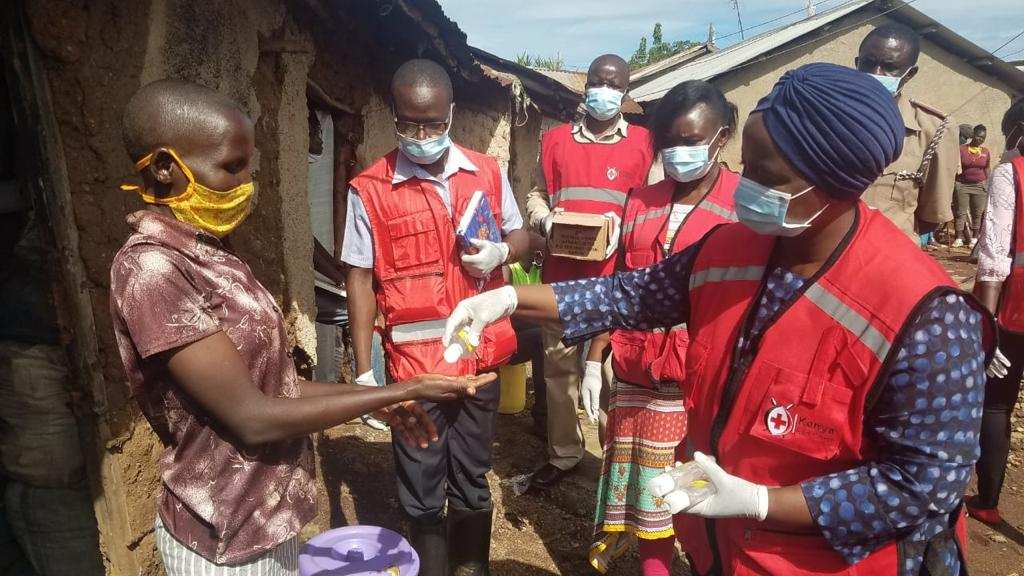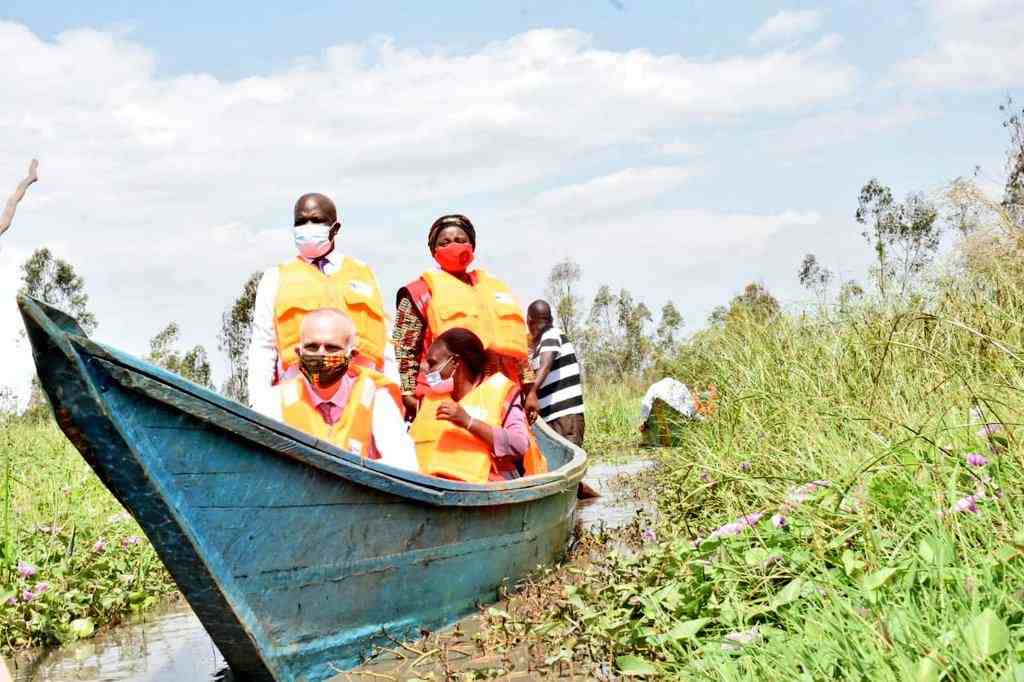
Dr. Asha Mohammed socialized COVID-19 measures in Kenya. (Photo: Dr. Asha Mohammed)
The Centre of Competence on Humanitarian Negotiation (CCHN) has conducted its first study on the role of gender and diversity in frontline negotiation. We interviewed several female leaders of humanitarian organizations and agencies to discuss the recurrent challenges and initiatives. This time, we spoke to Dr. Asha Mohammed, Secretary-General of the Kenya Red Cross Society who is passionate about the development of women and girls.
As Secretary-General of the Kenya Red Cross Asha leads over 600 staff and 200,000 volunteers, most of them young people. The Kenya Red Cross’s activities link up short-term humanitarian aid and long-term development projects that complement the work of the government and local authorities. Negotiations are often necessary for her to achieve what she stands for and to find solutions that benefit each party.
From public health to Movement partnerships
Before joining the International Red Cross and Red Crescent Movement, Asha worked for the Ministry of Health in Kenya. When HIV was declared a national disaster, she was seconded to the National AIDS Control Council. Later, she became the Health Director at the Kenya Red Cross rising to the position of Deputy Secretary-General. During this time she also served as Chairperson of the International Federation of Red Cross and Red Crescent Societies (IFRC) Global Health Commission. She was later appointed as IFRC’s head of zone office covering 15 countries in East Africa, Horn of Africa and the Indian Ocean Islands, before being appointed head of operations at the IFRC Johannesburg office, covering 49 countries in sub-Saharan Africa.
Having in-depth experience in the Movement, Asha was later seconded this time to the International Committee of the Red Cross (ICRC) in Geneva, as Movement Partnerships Adviser. Since the beginning of 2020, she has been the Secretary-General of the Kenya Red Cross. Building relations with national and international counterparts are key to successful negotiations. For her, it is not just about networking within the Movement.
“I have also volunteered with many organizations, including the Kenyan Medical Women’s Association, the Kenya Dental Association, and at the global level. Additionally, I am a member of several Working Groups and Platforms within the Red Cross Movement and support national societies’ agendas and advocacy at different levels.”

Flood assessment in Kenya. (Photo: Dr.Asha Mohammed)
Overcoming the lack of opportunities
Reflecting on her experience in negotiations, she thought that women had not been given the space and opportunities to take part in many high-stake negotiations. They may not be given the chance to work as negotiators because of a false perception that they are soft, tend to give in easily and are unlikely to get the best outcome.
Additionally, women may not be primarily listed for work carried out in areas that are not easily accessible or are dangerous because of their other responsibilities, such as childcare. Male colleagues are often more likely to be sent to such areas. She also recognized the importance of negotiation training for female negotiators.
“They need support to build up their skills. How can we ensure that many more women have the opportunity to go through training programmes to get the skills they need? You find that a lot of the programmes have a lot more men in them. I’ve attended negotiation training courses, and, even at the university level, the classes always had more men than women. So, I think we need to find a way of encouraging more women to come forward, grab the training opportunities and become excellent negotiators.”
You can do it
Returning to gender and diversity, Asha shared her challenges of negotiating as an African Muslim woman, even in her own country. In Africa, she pointed out, many interlocutors prefer to hear from outsiders rather than their own.
“Being an African Muslim woman means that I need to work maybe three times more than other people to be seen as able to do the job.”
On a positive note, she thinks that there is significantly more acceptance globally in terms of listening more to women, giving them more opportunities and being positive about the contributions that women can make.
“I also believe it’s very important to mentor each other and to have mentors. Some of those mentors can be men. I’m being honest when I say that my biggest supporters have been the men in my life, such as my father, my husband, and my brothers. These are the people who have been behind my success because they encouraged me. They support me, cheer me on and tell me ‘You can do it.’ You need people that you can look up to as role models.”
